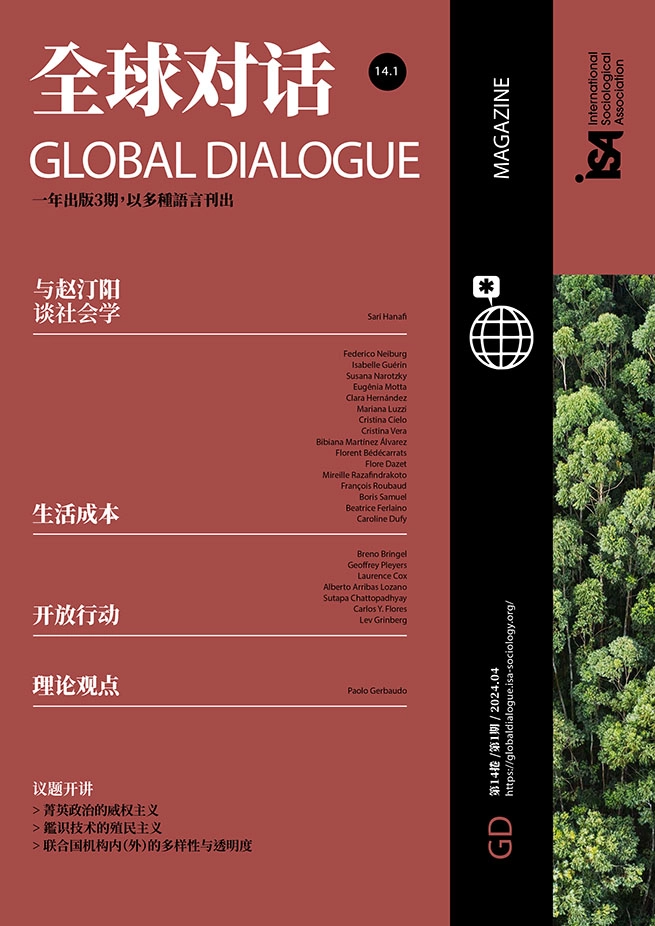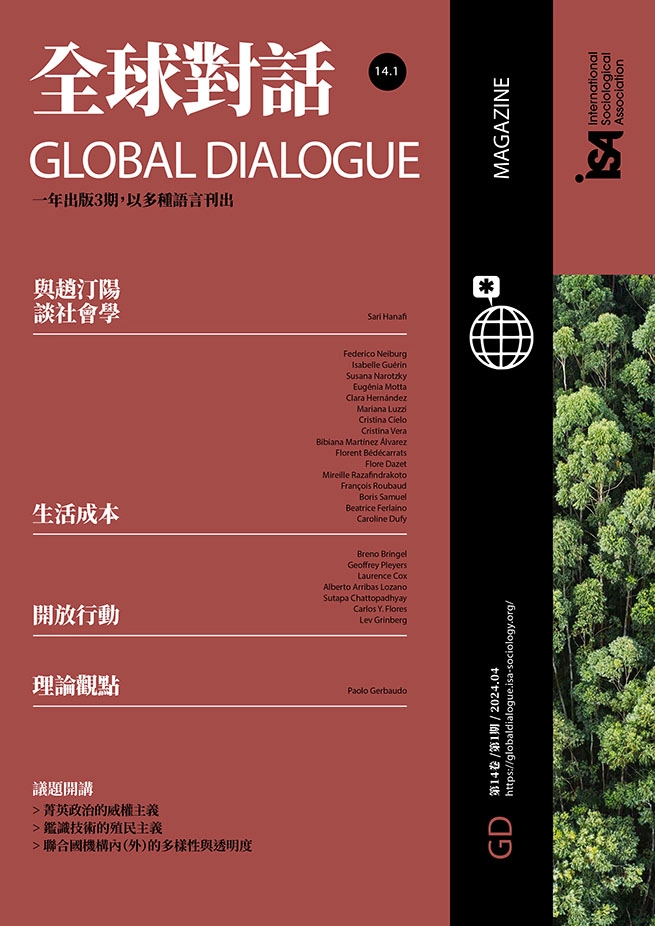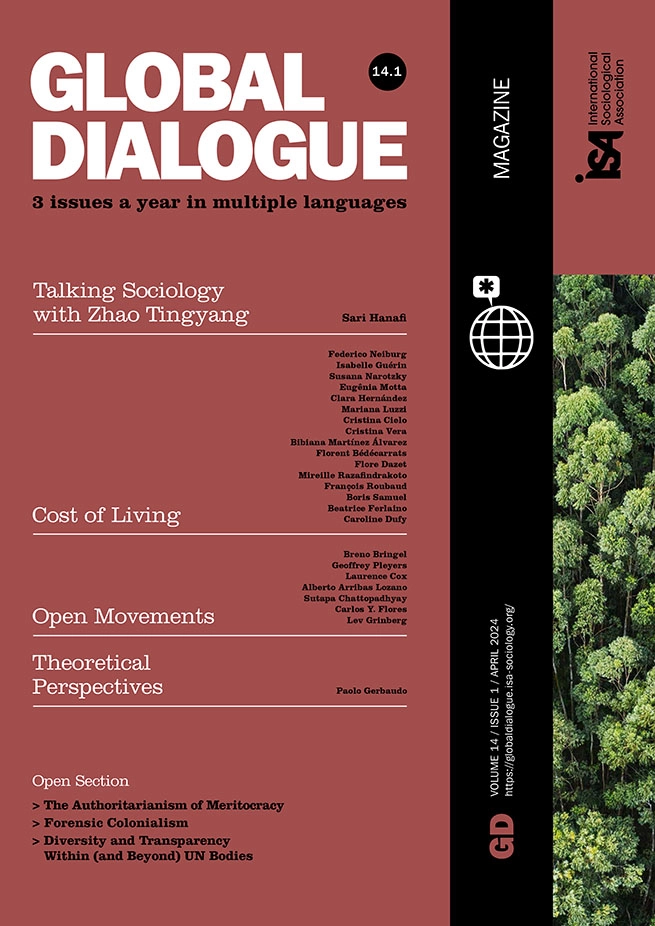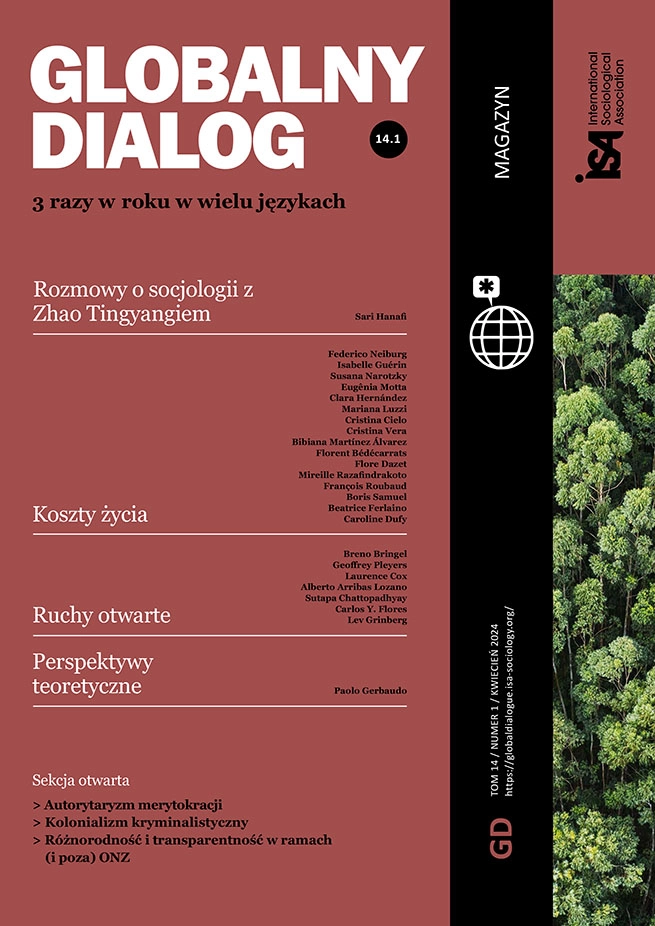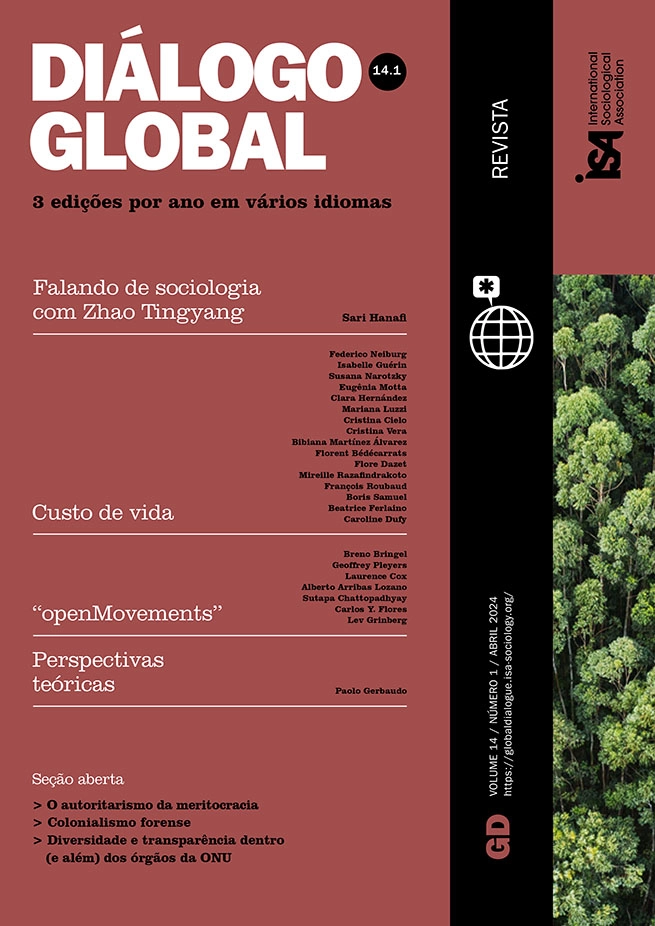The Strange Return of the Interventionist State
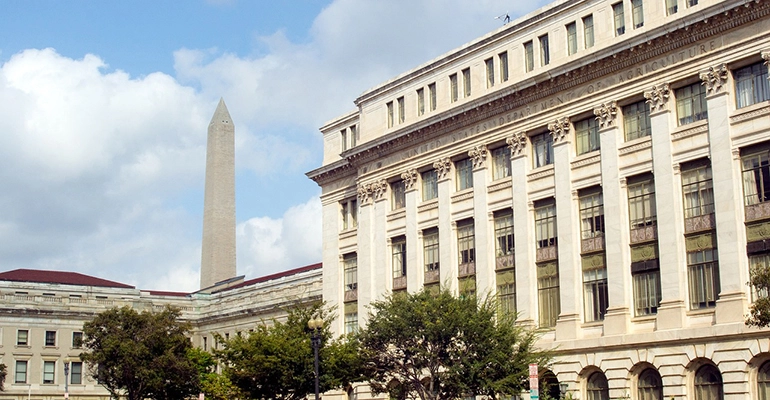
March 01, 2024
One of the most surprising political trends of the late 2010s and early 2020s has been the return of state interventionism in the economy. After many decades in which the idea that the state should intervene as little as possible in the economy constituted a bipartisan article of faith, we are witnessing a new acceptance of the need for state power – for good or worse.
Examples of this trend are manifold, and in some cases they are also very conspicuous; yet surprisingly, their implications have not been fully drawn out. While during the golden age of neoliberalism, there was strong consensus on the need to establish a global free market, since the 2008 financial crisis, many countries have erected new tariffs and regulatory barriers. While it was long held that the state should steer clear of interfering in the economy, now governments are overtly engaging in industrial policy, specifically the idea that the government should decide the economic priority of the country, promote technological excellence, and ensure capital is channelled towards strategic sectors. Finally, while for decades politicians progressively decreased public investment, leading to much infrastructure falling into disrepair, now there is a new broad consensus on the need to strengthen public investment, as seen in the investment plans of Next Generation EU or the economic programmes of Bidenomics which aim to accelerate the green and digital transition.
What are we to make of the return of state interventionism which has been described as amounting to a “New Washington Consensus” (in contrast to the neoliberal “Washington Consensus”)? Should these political discourse and policy changes be taken as just a tactical perhaps temporary change within neoliberal consensus? Or are they rather glimmers of a more structural and long-term shift in policy? To date, these changes have mostly been seen, especially on the left and among critical political economists, as a limited route correction fundamentally keeping with the overall spirit of neoliberal economics.
In contrast, I contend that these trends constitute the manifestations of a profound transformation of contemporary capitalism and capitalist democracies. The changes signal that the bipartisan agreement on government intervention that dominated the golden era of globalisation has been – at least partly – displaced and that, in this turbulent time, it is widely accepted that more robust state intervention is necessary. However – and this is crucial – this does not mean that this change and the return of the state are inherently a positive transformation or anything like a shift towards socialism. In fact, as we shall see, in most cases new interventionist policies have been waged in the interest of the wealthy and that of large corporations.
This change of paradigm invites sociologists some assumptions that became dominant in political debates over the last decades. We should re-examine the widely accepted notion that we live in a society dominated by the “free market” in which unrestrained competition and the impersonal mechanisms of the market dominate every corner of our lives. As recent events have shown the market is anything but “free”, as it is dominated by power oligopolies often enjoying the support of policy-makers. Furthermore, the very implementation of market mechanisms has been in many respects been a specific form of “state policy”, aimed at achieving given political objectives by economic means. Now that such state intervention has become more evident, also, the political character of these mechanisms has become more apparent, and the phantasy of a “free market” becomes more difficult to maintain. The epistemic turn carried by the return of interventionism, namely the way in which it makes more apparent the political character of economic decisions, could have important consequences for political mobilisation, in lessening the ability of power-holders to claim that they are just managing the local consequences of market pressures.
Beyond the illusion of the “free market”
The neoliberal era, which took root in the 1980s, ostensibly presented itself as the era of “small government” and “free markets”: an era in which much of the course of society would be decided by following market principles such as economic competition and the price mechanism. This sociological description captured the most distinctive point of consensus in political ideology, which pivoted on glorifying the market and vilifying the state. Between the 1980s and early 2000s, a broad consensus crystallised on this matter, spanning from “early adopters” among neo-conservatives such as Margaret Thatcher and Ronald Reagan to copycats among Third Way leaders such as Bill Clinton, Tony Blair, and Gerhard Schröder.
Arguing that both centre-left and centre-right politicians were neoliberal, as many critics did at the time, captured a fundamental kernel of truth. Large swathes of the political spectrum, of both the centre-left and the centre-right, bought into the notion that in the “new times” of the “end of history,” or the time of “post” (post-modernity, post-ideology, post-class to quote some of the most fashionable expressions) politics, the state as the chief instrument of what was no more, had to retreat. At the same time, free rein had to be given to the “spontaneous” initiative attributed to “society” (or better still, “civil society” to clarify that it was society beyond the state) and to the market. The discretionary intervention of the state in economic affairs inherited from the Fordist era – its planning apparatus, state ownership, and comprehensive social security – was seen as an impediment to the unfolding of private initiative.
Matters were far more complicated once the observer moved from the pinnacles of the ideological tower down to the more mundane level of policy detail and economic processes. The most consequential implementation of this blueprint consisted of the explosion of economic globalisation. Global trade and investment experienced momentous growth amid the lowering of trade barriers and vanishing capital controls, both manifestations of a “non-interventionist” or “laissez-faire” state. But globalisation was hardly “spontaneous”. In every country its unfolding was made possible by politicians making laws, privatising companies, creating free-trade zones, and “consolidating” public finances to make their economies “fit for globalisation”.
As globalisation faced a number of successive crises (in finance, climate, and now geopolitics) it soon became apparent that the state neoliberals did not resent the state as a whole, but rather selectively opposed what Poulantzas described as the social and economic apparatuses of the state, those which had grown during the social-democratic era and were responsible for many concrete improvements in the living conditions of the majority of citizens. If anything, the repressive apparatus of the state (the army, the police, the prisons, etc.) grew on and on during the neoliberal era. Besides the most infamous episodes of that time, such as the Pinochet dictatorship in Chile, combining neoliberal economics and the killing of political opponents, we witnessed the rise of a “penal state” as documented by sociologist Loïc Wacquant and rising incarceration rates in countries like the USA. A less “social state” meant a more repressive state.
Regarding economic policy, the state was permanently assigned an ancillary role. State intervention was tightly limited to “regulatory” purposes with a strong suspicion of any proactive economic policy which was seen as engaging in the dangerous task of “picking winners” and “crowding out investors”. Yet, as regulation theorists have long argued, even so-called “de-regulation” is a form of regulation, but one that, besides its notable economic effects (commodification, the creation of oligopolies, etc.), also has important ideological ones: making people believe that the economy is not a realm of politics, but a sphere now left to the unfolding of pure market forces. If in history there have always been “markets” – as the Annales School of Economic History has argued – there has hardly ever been such a thing as the “free market”. The market is permanently embedded in society, as Polanyi maintained. The return of the visible hand of the state in times of explicit state interventionism provides abundant proof to dispel this pernicious myth.
The new planning state and its political implications
Recent crises project a return of what neoliberalism repressed: the interventionist state. The crises experienced since the 2008 financial crisis have seen governments adopt a far more proactive role than we had been accustomed to. One revealing example of major investment plans seen in the USA and the UK is the significant quantity of financial resources committed to them and how they adopt, in their very name, the frame of “plans”. Everywhere one looks, plans are mushrooming for climate transition, solar energy, digitalisation, semiconductor research, etc.
These plans, in turn, often pivot on various “missions,” using a phraseology popularised by Italian economist Mariana Mazzucato, the theorist of the “entrepreneurial state”. This seems to militate against received suspicion towards plans and planning of all sorts, seen as dregs of the failure of a “command economy” and the Soviet economic model. Particularly significant are the major investments in micro-chip technology in the West. Both the USA and the European Union have launched efforts to produce locally microchips whose manufacturing had hitherto been concentrated in South-East Asia. These choices make no sense from a purely economic or market perspective: microchips are produced in Taiwan because it is much cheaper to produce them there. But they respond to other considerations that, while being “anti-economic” in the short term, cannot be ignored, such as considerations of technological supremacy, national security, etc.
This return to public investment and planning projects is significant when seen from some familiar neoliberal nostrums. As Michał Kalecki famously observed, capitalists resent public investment as they think all investment decisions should be their monopoly. Planning and the “planning state” were a traditional target of attacks from neoliberals such as Hayek and von Mises, who saw planning in any way or form as a manifestation of a major form of hubris, marked by the pretence of politicians to decide on things that only the market should be entitled to choose. Planning was not abolished but transferred by and large from the state to multinational corporations, such as Walmart. However, this does not mean that this return of the “visible hand” of the state is necessarily a positive move.
For example, Bidenomics may have well reassert the strategic importance of public investment, but it contracts out public works, leaving these projects to be carried out by private firms. Further, in the US as in most other countries, there is no talk of the state claiming control of the “commanding heights” of the economy, as was the case with the post-war interventionist state. The battle for recovery of public ownership over strategic firms still lies ahead of us (though in countries like France and Spain, there has been a partial move in this sense). Furthermore, this return of the interventionist state is strongly contested, as seen in the rise of libertarian politician Javier Milei in Argentina on a platform centring precisely on the denunciation of state intervention in the economy. Yet, time and again, politicians as Milei find themselves retreating on their untenable promises to “demolish the state”, thus revealing how much the supposed “free market” is far from spontaneous, but always relies on covert state intervention. As it was the case for the neoliberals of old, libertarians as Milei don’t really want to “demolish the state”, but to delegitimise its democratic use.
If there is a silver lining in the present “neo-statist” conjuncture, it is the fact that now “the king is naked”. State involvement in the economy is no longer shrouded in “free-market” illusions, as it was in the recent past, and the state’s decisive role in structuring the economy and mitigating its inequalities is out there for everyone to see. This epistemic turn can offer progressive forces new points of pressure and targets for mobilisation, while making citizens more aware that the economy is not a natural or spontaneous phenomenon but is deeply intermingled with political decisions. As the fantasy of a market society fades, the conditions are set to rethink what democratic politics in present circumstances may look like.
Paolo Gerbaudo, Universidad Complutense de Madrid, Spain <paolo.gerbaudo@ucm.es> / Twitter: @paologerbaudo



